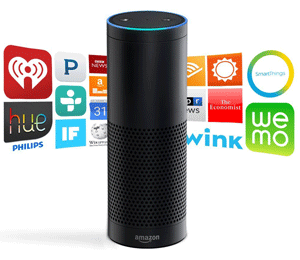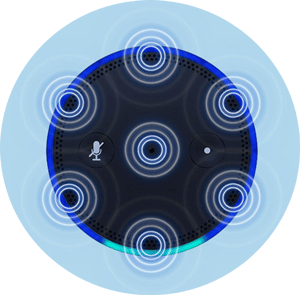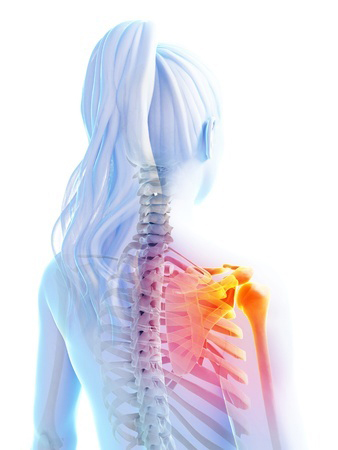Dr. Ron’s Favorite Raw Carrot Juice Recipe by Dr. Ron Cherubino
Amazon Echo and People with Disabilities
Amazon Echo and People with Disabilities
by – Dr. Ron Cherubino, DC, AMD
More and more people are becoming familiar with the Amazon Echo. As you can see from the picture it is housed in a sleek black cylinder with a high-tech but simple look. Amazon Echo, or “Alexa”, is a voice controlled device that has the ability to perform various functions ranging from answering questions to controlling in-home smart devices. While this device can potentially be useful for everyone, people with impairments or disabilities may find this a true blessing.
From Skeptic to Enthusiast with the Help of Alexa
I was skeptical at first. I even passed up an opportunity to purchase this device at a reduced price because I simply couldn’t see how it would be useful. I have now been using Amazon Echo, who answers to the name of Alexa, for a little over a month and currently have two units in my home. I am 110% sold on this amazing digital assistant who connects me to the world and my home via Wi-Fi. (Notice I use the word “who” and also find myself referring to Alexa as “she”.)
While I am easily won over by a quality piece of technology, my wife and daughter are typically not. As a testament to how good Amazon Echo really is, their resistance to Alexa was quite short-lived.
Having Alexa connected to Samsung’s SmartThings Hub was undoubtedly an icebreaker. It gave the entire family immediate voice control over everything from lighting to temperature control as well as the features already built into Echo.
Amazon Echo and Patients with Disabilities
In my professional life as a doctor, I work with a range of patients, many who living with impairments or disabilities. The other day I was treating a patient that currently requires the use of a wheelchair. I found myself speaking enthusiastically about Amazon Echo. We began by discussing the benefits of having Wi-Fi connectivity and the ability to potentially control many aspects of her environment without ever having to leave her wheelchair.
As I think about Echo and its usefulness for people with disabilities, I am more excited than ever about the possibilities. It is obvious to me that certain of its features could be of tremendous value in the everyday lives of people coping with various levels of disability.
A Few Types of Disability Where Echo May Be Helpful
- Vision problems
- Impaired mobility
- Agility, including fine motor movements
- Painful movement (by itself or associated with other disabilities)
- Impaired memory (or other disabilities associated with thought processes)
Here are just some of the ideas that I’ve come up with for a number of my patients. (Please be sure to email and share with me any additional ways you have found for Echo to help)
Voice Control and Current Abilities (connected home hub is required for some tasks)
- Control of lighting through hub connected switches anywhere in your home.
- Control of your home’s heating and air-conditioning systems.
- The ability to lock or unlock any connected door in your home
- The ability to have Alexa set alarms (perhaps as a medication reminder)
- Access to information from the Internet
- Access to radio stations and music collections including Amazon Prime
- The ability to connect to your cell phone via Bluetooth
- Alexa can tell you the time upon request
- Alexa can answer your questions and even play a game with you through the use of an ever-growing number of free smart apps.
- Listen to news on demand
- Alexa can play audiobooks
- Echo can add items to your shopping list
- Amazon Echo can keep track of your calendar events
Also, people with post surgical short-term disability where confinement to bed is necessary, can now have a new level of function during their convalescence.
Echo Will Become Even Smarter Over Time
Echo is definitely a work in progress. While it’s already good, it does have the ability to learn and “evolve” as more of us use it on a regular basis. I recently read that Amazon has dedicated $100 million to Alexa apps for Echo. With that kind of funding we can expect increased usability and expanded functions on an ongoing basis well into the future.
When it comes to patients with disabilities I strongly recommend Amazon Echo for the security, convenience and peace of mind it can offer.
 About the author: Dr. Ron Cherubino is the founder and current clinical director of Cherubino Health Center which is located just outside of Boston Massachusetts. He is a Chiropractic physician (DC) and a Doctor of Alternative Medicine (AMD). He hosts the Ask Dr. Ron Radio Show, Healthy Conversations with Dr. Ron and is the author of numerous articles on chiropractic, holistic and alternative medicine.
About the author: Dr. Ron Cherubino is the founder and current clinical director of Cherubino Health Center which is located just outside of Boston Massachusetts. He is a Chiropractic physician (DC) and a Doctor of Alternative Medicine (AMD). He hosts the Ask Dr. Ron Radio Show, Healthy Conversations with Dr. Ron and is the author of numerous articles on chiropractic, holistic and alternative medicine.
If you like this blog/article on Amazon Echo and people with disabilities, please be sure to subscribe on the (side or bottom of this page).





